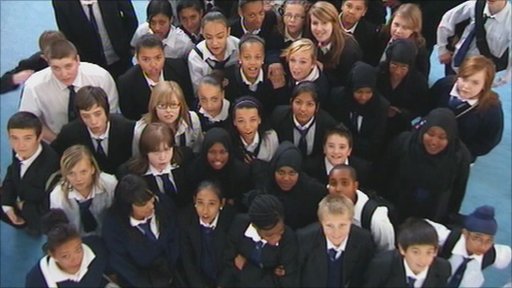
Immigration has caused primary schools in several cities to be flooded out and councils are now considering “bussing” the immigrant children to surrounding areas to try and cope with the overload.
According to a report issued by the London Council’s lobby group, tens of thousands of children will be turned down places at primary schools because “classrooms are full to bursting point.”
According to the report, the most affected areas are London, Birmingham, Slough and Luton — all areas of Third World immigration concentration.
In London, the report says, an extra 50,000 places will have to be found to ease the shortage — and the situation is predicted to worsen every year.
According to the report, parents “could be forced to separate four-year-olds from older siblings and send them to schools miles from their home.”
As councils struggle to educate all children in their boroughs, they are being forced to resort to measures “they would not choose under any other circumstances,” the report said.
It continues by saying that councils are contemplating “transporting very young children to schools several miles from their homes and failing to guarantee places for siblings at the same school.”
Tough decisions to send young children to schools miles from their homes have already led to a rise in absenteeism, the report warned.
The report attributes the shortage to a baby boom fuelled in part by rising migration. This has been compounded by a “sluggish housing market” which means that parents are effectively trapped in areas with a lack of school places.
Some pupils are already temporarily being taught in school libraries or church halls because schools lack space, the report continued. Of 118 extra primary classrooms created in London this September, 79 are temporary buildings or sections of school libraries.
Some schools are erecting portable cabins on school playing fields, and others are raising class sizes.
The London Councils lobby group says that authorities have “nowhere near sufficient” funds to pay for the extra places needed and will need at least £1.5 billion to tackle the shortages in London alone.
Areas with the most severe shortfalls include Richmond upon Thames, Kingston upon Thames, Croydon, Barnet and Brent, which need an extra 2,000 primary places.
“There are now some very large geographical areas with absolutely no capacity, particularly for reception class children,” the report said.
As well as the South East and West Midlands, primary schools in Bristol, Bradford, Sheffield and Hove are also under pressure.
The British taxpayers are therefore being called upon once again to finance their own ethnic cleansing.











